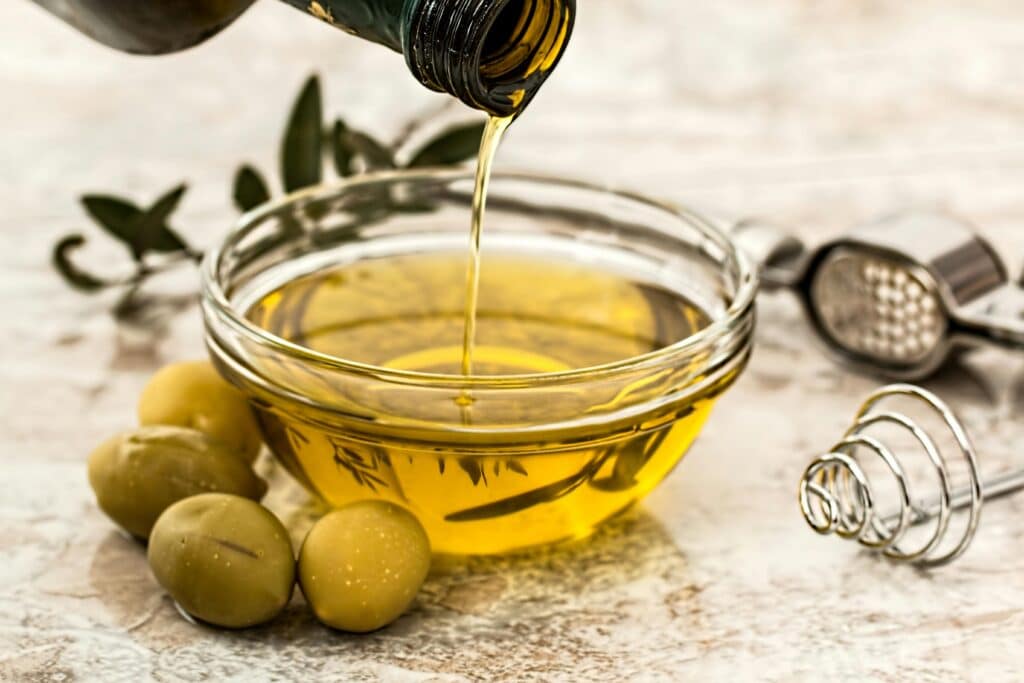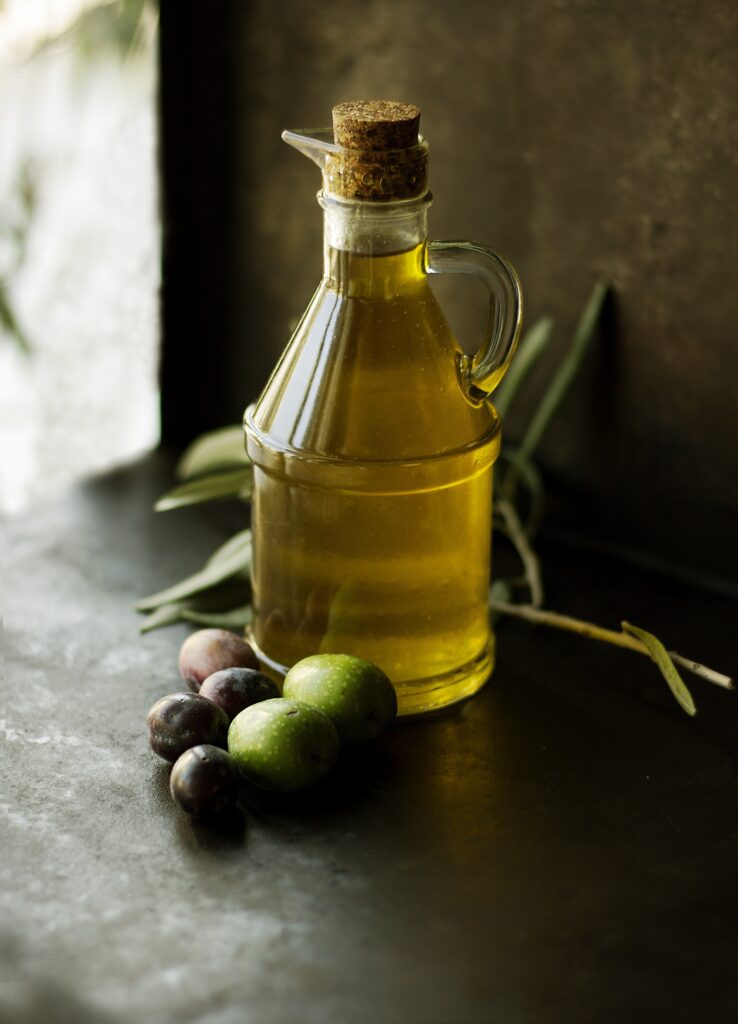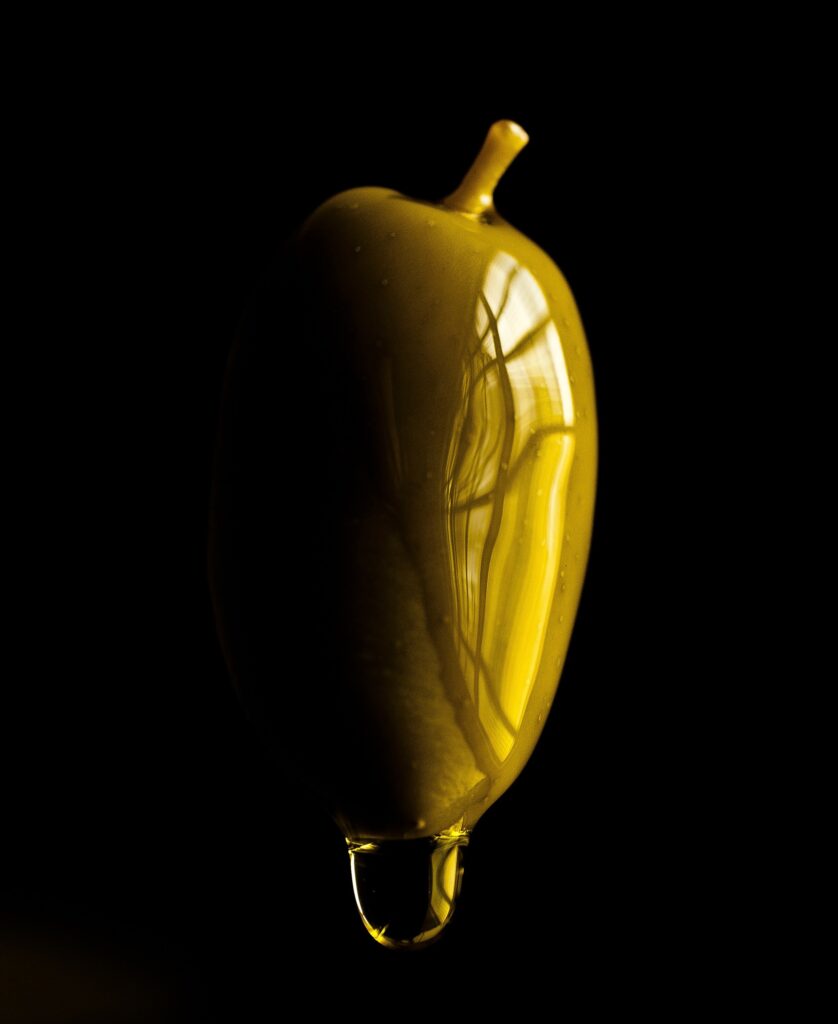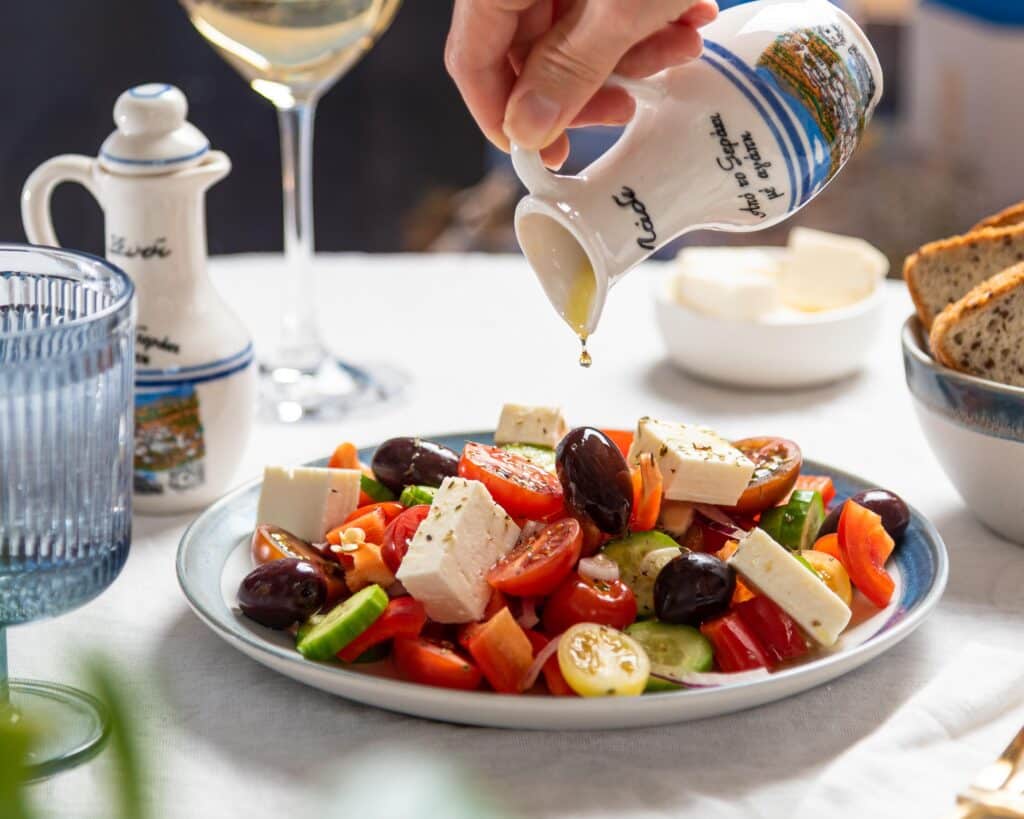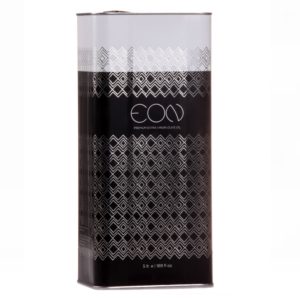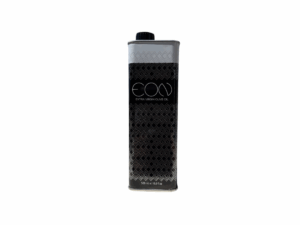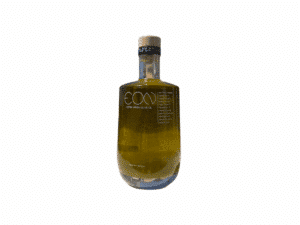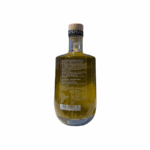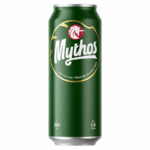The History of Greek Olive Oil: A Treasure Inherited from the Ancients
The Origins of Greek Olive Oil
Greek olive oil has its roots in the earliest Mediterranean civilizations, some 6,000 years ago, in the regions that would later become ancient Greece. Indeed, the olive tree is thought to have been cultivated in the region of Crete as early as the Bronze Age. The Minoans, the island’s first inhabitants, were already using the oil for its medicinal, culinary and cosmetic virtues. Olive oil soon became much more than a simple food product; it embodied the richness of the Greek land and became a sacred good, the bearer of numerous religious and cultural symbols.
Olive Oil in Ancient Greece
In ancient Greece, the Greeks revered olive oil as a divine product. They used it not only in cooking, but also for sacred rituals. The Greeks offered oil to the gods, a common practice in temples and altars dedicated to Zeus, Athena and other deities. Olive oil was an integral part of sacrifices, an act of purification and blessing. They also poured it over statues of the gods, symbols of power and wisdom. The oil also nourished the lamps in the temples, ensuring eternal light.
Olive oil also played an essential role in ancient Greek society and economy. The Greeks used it for toiletry and personal hygiene, particularly in baths. Before Olympic Games competitions, athletes would smear themselves with olive oil, as it symbolized purity and physical strength. Olive oil was not just a utilitarian product, but a profound ritual and social element. It strengthened the relationship between man, nature and the divine.
Olive Oil and the Greek Regions
Already widespread,olive oil came from a variety of Greek regions, but some, such as Kalamata and Crete, were particularly renowned for the quality of their production. The Peloponnese was a major center for olive cultivation. Growers in this region maintained olive groves often associated with ancient traditions. These traditions helped build the reputation of Greek olive oil.
Producers in Crete and the Peloponnese tended their olive groves with care, following cultivation methods handed down from generation to generation. These traditions have enabled Greek olive oil to survive the centuries and retain its reputation. Even today, some regions continue to use these same production techniques.
Historical anecdotes
Olive oil played an essential role in Greek politics and economy. The Greeks used it as currency in their trade with Mediterranean civilizations such as the Egyptians and Phoenicians. Amphorae of olive oil found in archaeological sites across the Mediterranean bear witness to its importance in these exchanges. Olive oil also symbolized peace and prosperity. Olive branches were given to the winners of the Olympic Games, and kings and heroes were often crowned with olive oil.
Olive trees themselves were considered sacred. The myth ofAthena’ s olive tree recounts how the goddess, competing with Poseidon for control of Athens, offered the Athenians an olive tree as a divine gift. The tree symbolized prosperity and peace, and the oil produced from it was considered blessed. Its use in rituals thus strengthened its link with the divinity.
Greek Olive Oil Production: From Olive to Oil
The Manufacturing Process: From Harvest to Extraction
There are several key stages in the Greek olive oil production process. Each stage plays an essential role in guaranteeing the oil’s quality and benefits.
Growers generally harvest olives in autumn, when they are ripe but still firm. Harvesting can be manual or mechanical, depending on local practices and farmers’ preferences.
After harvesting, growers quickly transport the olives to the mill. The speed of this process is crucial to preserve the freshness of the olives and avoid any deterioration in their properties.
Before milling, producers wash the olives to remove all impurities, such as leaves and dust. This step ensures that the oil remains pure and of the highest quality.
The olives are then crushed in a stone or hammer mill. This process produces a homogeneous paste, essential for oil extraction.
The resulting paste is then slowly kneaded. This step releases the essential oils, facilitating oil extraction. It generally takes between 20 and 40 minutes.
- Pressure or cold extraction
The paste is cold-pressed to extract the oil. This method preserves natural aromas, vitamins and antioxidants, guaranteeing a high-quality olive oil.
After extraction, the oil is separated from the vegetable water by centrifugation or decantation. This process produces a clear oil, ready for storage.
The producers store the oil in airtight containers, away from light and heat. This preserves the oil’s freshness and properties right up to bottling.
The different types of olive oil
There are several types of olive oil, each with its own distinct characteristics. Each type is the result of different production methods, influencing taste, texture and health benefits.
Extra virgin olive oil is the purest and most sought-after. Producers obtain it by cold pressing, without chemical treatment. This method preserves all the nutrients, such as antioxidants and essential fatty acids. The taste is rich, sometimes slightly bitter or fruity. Consumers use it mainly for salads, seasonings or raw. Because of its many benefits, it remains the preferred choice for good health.
Producers also obtain virgin olive oil by cold pressing. However, it may have slight taste defects. Although of good quality, it is slightly less refined than extra-virgin oil. It still retains many of its nutritional properties, but its taste is milder. Chefs use it in cooked dishes where a more neutral taste is desired.
Producers undergo a chemical process to improve the taste of refined olive oil. Although this oil is sweeter, it loses some of its nutrients and antioxidants. Its taste is neutral, making it ideal for industrial applications or dishes requiring an oil with a lighter flavor. However, it is less beneficial to health than extra-virgin or virgin oil.
These oils vary according to their manufacturing process, taste and nutritional value. Extra-virgin oil remains the preferred choice for those seeking a healthy, high-quality product.
Sustainable Agricultural Practices in Greece
Greek producers favor environmentally-friendly farming methods, combining traditional know-how with modern techniques. They often cultivate their olive groves organically, limiting the use of chemicals, which guarantees pure, healthy oil.
In addition, practices such as crop rotation and the use of natural compost preserve soil quality and water resources. Crop rotation helps to maintain the soil’s nutrient balance and prevent depletion. Natural compost improves soil structure, making it more fertile and able to retain moisture. These methods contribute to a healthy environment and sustainable olive oil production.
Greek growers also adopt terraced cultivation techniques, particularly in mountainous regions. These terraces limit soil erosion and facilitate more efficient irrigation, enabling better management of water resources, especially in dry periods.
In addition to these environmentally-friendly practices, manual harvesting is commonly used. Although intensive, this method allows us to select the ripest, healthiest olives, guaranteeing optimum oil quality. It also limits the carbon footprint, as no heavy machinery is required.
These methods not only guarantee exceptional olive oil quality, but also play a key role in preserving natural resources, reducing the ecological footprint and combating climate change. By adopting these sustainable practices, Greek producers ensure nature-friendly agriculture while offering exceptional olive oil.
Olive Oil Producing Regions in Greece
Peloponnese: Greek olive oil excellence
The Peloponnese is one of Greece’s most renowned olive oil producing regions.
Famous for its black olives, this region produces a mild, balanced extra-virgin oil with fruity, slightly bitter aromas. The region’s Mediterranean climate and rich soils contribute to a particularly flavorful olive oil, ideal for salads and fresh dishes.
The Koroneiki variety is grown on limestone soils, giving the oil a robust, herbaceous and slightly spicy taste, with low acidity. The climatic conditions favor an oil rich in polyphenols and antioxidants, often certified PDO (Protected Designation of Origin), guaranteeing its authenticity.
- Taygetos Mountains (Laconia)
Kalamata and local varieties produce a fresh, fragrant olive oil with a delicate, slightly spicy taste. The mountain climate and manual harvesting ensure superior oil quality.
These regions also produce high-quality olive oil, often based on Koroneiki, with sweeter, fruitier sensory characteristics. The oil is sometimes certified PDO, guaranteeing quality and origin.
Crete: The power of the Cretan terroir
The island of Crete is one of Greece’s biggest olive oil producers, accounting for around a third of the country’s total production.
This variety dominates the island, offering a fruity oil, rich in aroma and low in acidity. It is ideal for everyday use, particularly in vinaigrettes and seasonings.
Another Cretan variety, Tsounati, produces a milder, slightly spicy oil, perfect for cooked dishes.
Famous for its oil with an intense, spicy flavor, Sitia produces an extra-virgin oil, often considered one of the best in Greece, with herbaceous and slightly bitter notes.
These Cretan regions produce exceptional olive oils from local varieties, characterized by a more robust taste and rich aromas.
Cretan olive groves are renowned for their organic cultivation and manual harvesting methods, guaranteeing superior quality olive oil.
Ionian Islands: Light and delicate oils
The Ionian islands, including Corfu, Kefalonia, Ithaki and Zakynthos, are famous for their light, delicate olive oil.
The Lianolia variety, grown on the island, produces an extra-virgin oil with a fruity, slightly spicy and slightly bitter taste, ideal for fresh and raw dishes. This oil is renowned for its subtle notes and sweetness.
The Throumba and Lianolia varieties produce an oil with a herbaceous, slightly spicy taste and a rich texture. Kefalonia oil is perfect for marinades and light cooking.
As in Corfu, the Lianolia variety produces a delicate, fruity oil. It is highly prized for its subtle aroma and freshness, ideal for homemade vinaigrettes or fresh Mediterranean dishes.
The island produces light, delicate oils from Lianolia and other local varieties, with subtle aromas perfect for grilled vegetable dishes or fresh salads.
Rhodes: A rich, balanced olive oil
Rhodes, also known as the Emerald Isle, produces top-quality olive oil.
Rhodes olive oil is produced from local varieties, offering a balanced taste, both sweet and slightly bitter.
Rhodes oil is distinguished by its fresh notes and slight bitterness, making it ideal for the island’s traditional cuisine, such as fresh tomato salads or fish dishes. It is also used for its health benefits, thanks to its rich antioxidant and polyphenol content.
Lesvos: The island of ancient olive trees and exceptional olive oil
Lesvos, located in the Aegean Sea, is a key region for the production of quality olive oil.
The island is famous for its local olive varieties, such as Kolovi and Mastoides, which produce a richly flavored oil.
Although the Koroneiki variety is grown on the island, it produces a sweeter, fruitier oil, ideal for vinaigrettes and fresh Mediterranean dishes.
Lesvos olive oil is distinguished by its subtle, slightly herbaceous and fruity aromas. It is often used in traditional Greek cuisine, adding a touch of freshness to dishes.
The island’s oil mills are renowned for their artisanal production, which respects traditional methods and the environment. Many olive groves are cultivated using organic methods, guaranteeing pure, healthy olive oil.
Lesvos is also famous for its thousand-year-old olive trees, reinforcing the rich history of the oil produced on the island. These trees, often over 2,000 years old, yield olives of exceptional quality and produce oils of great finesse.
The Health Benefits of Mediterranean Elixir: A Natural Treasure
Rich in antioxidants and anti-inflammatory properties
Greek olive oil is particularly rich in antioxidants, notably vitamin E and polyphenols. These components help protect cells against the effects of free radicals, slowing down cellular aging. What’ s more, its anti-inflammatory properties are particularly effective in reducing inflammation, which can help mitigate the risk of chronic inflammatory diseases such as arthritis or autoimmune diseases.
Benefits for the heart
The monounsaturated fatty acids present in olive oil are highly beneficial to cardiovascular health. They reduce LDL cholesterol (bad cholesterol) while increasing HDL cholesterol (good cholesterol), thereby reducing the risk of cardiovascular disease. This action also helps improve blood circulation, reducing the risk of thrombosis and hypertension.
Preventive role in chronic diseases
Olive oil plays a major role in the prevention of chronic diseases. Its regular use can reduce the risk of type 2 diabetes, hypertension and certain types of cancer, notably colon and breast cancer. Including olive oil in the diet contributes to better digestive health and promotes increased longevity, by strengthening the immune system and improving intestinal function.
Sinceancient times, olive oil has played a central role in traditional Greek medicine. It is used to relieve a variety of ailments, including joint pain, minor burns and digestive disorders. The Greeks consider it a veritable elixir of health, thanks to its multiple therapeutic virtues. It is also often used in skin and hair care blends, thanks to its moisturizing and nourishing properties.
Greek Olive Oil in the Kitchen: Unparalleled Flavor
Typical Dishes Where Olive Oil Is Key
Greek olive oil is a fundamental ingredient of Mediterranean cuisine. It goes perfectly with :
- Greek salad, with fresh vegetables and feta cheese.
- The traditional soups such as avgolemono soup (lemon and egg soup).
- The grilled meatsespecially lamb and chicken.
- The sauces such as tzatziki and hummus.
- The roasted vegetablestypically cooked in olive oil.
- The pita breadssoaked in herb-scented olive oil.
Each dish benefits from the aromas and benefits of olive oil, adding an authentic, flavorful touch.
Tips for Cooking with Olive Oil
- Choose a quality extra virgin olive oil for pure flavor.
- Use it for cooking over medium heat to preserve its aromas.
- Store the oil in a cool, dark place to maintain its freshness.
- Do not use olive oil for high-temperature frying.as it may lose its beneficial properties.
- Add olive oil after cooking to enhance the flavor of dishes without altering the nutrients.
- Apply a thin layer of oil to vegetables before grilling for a tender texture and delicious taste.
These tips will help you fully exploit the virtues and flavor of olive oil in your preparations.
Why Greek Olive Oil Is Indispensable
Greek olive oil brings a unique richness to dishes, balancing flavors and enhancing textures. Indispensable for an authentic Mediterranean culinary experience, it is distinguished by several qualities.
Greek olive oil is distinguished by its complex, fruity and slightly bitter flavor. Each variety, whether from Kalamata or Crete, brings subtle nuances that enhance every preparation.
It can be used in a wide range of preparations: cooking, salads, marinades, and as a finishing touch on ready-cooked dishes. Its rich taste makes it an ideal choice for seasoning grilled vegetables or simple pasta dishes.
Greek olive oil is a privileged source of monounsaturated fats, beneficial for cardiovascular health. It helps reduce LDL cholesterol while increasing HDL cholesterol, thus contributing to maintaining a healthy heart.
It is rich in antioxidants such as vitamin E and polyphenols, which boost immunity. These nutrients play a key role in the fight against cellular aging, while also providing general health benefits.
- A pillar of the Mediterranean diet
Olive oil is at the heart of the Mediterranean diet, a healthy and balanced diet. Used daily in a variety of dishes, from cooking vegetables to vinaigrettes, it contributes to a healthy diet and longevity.
How to Choose Authentic Greek Olive Oil
Identifying Quality Greek Olive Oil
To choose an authentic Greek olive oil, check the following criteria:
The label must clearly indicate that the oil comes from Greece.
Look for labels such as “AOC” (Appellation d’Origine Contrôlée) or “PDO” (Protected Designation of Origin). These certifications guarantee the quality of the oil.
These labels ensure that the oil complies with strict production standards and local traditions.
Choose extra-virgin olive oil, which is the purest and most natural. It is obtained by cold pressing, without chemical treatments.
Producers store olive oil in glass or stainless steel containers to prevent oxidation. Exposure to light or heat can alter its quality.
A quality olive oil has a fresh, fruity taste, sometimes slightly bitter or spicy, depending on its origin and type of olive.
By following these criteria, you can easily identify authentic, high-quality Greek olive oil. Avoid inferior or blended oils, which are often cheaper and less beneficial.
Differentiating Extra-Virgin Olive Oil
Extra-virgin olive oil is the best quality available. Producers obtain it by cold pressing, without chemical treatment, which preserves its natural flavors. Compare aromas and color to identify a quality extra-virgin oil. It should have a fruity, slightly bitter taste, with a typical pungency. Extra-virgin olive oil is also the richest in antioxidants and monounsaturated fatty acids.
Avoiding counterfeits and choosing local products
Counterfeit olive oils are unfortunately commonplace. To avoid scams, follow these tips:
Prefer to buy directly from producers or from reputable websites that guarantee product traceability.
The label must clearly state “local product” and provide detailed information on origin and production method.
- Opt for sustainable practices
Choose producers committed to ecological and environmentally-friendly practices to guarantee authentic, high-quality oil.
Opt for extra-virgin olive oils, considered the best quality and obtained by cold pressing.
Make sure the oil comes directly from regions of Greece renowned for their production of quality olive oil.
On our website, we offer extra virgin olive oils from small local Greek producers, guaranteeing the authenticity and quality of each product.
A Product of Prestige and Worldwide Excellence
International growth
Greek olive oil has conquered international markets, notably in Europe, the United States and Asia. Its reputation is growing thanks to its superior quality, unique taste and health benefits.
Luxury product
Greek extra virgin olive oil has become a luxury product in high-end kitchens. Connoisseurs seek out varieties such as Kalamata or Koroneiki olives for their intense flavor and subtle aromas.
A must in every kitchen
Today, Greek olive oil is becoming an indispensable ingredient in modern kitchens. Renowned chefs use it in refined dishes, and it has become a staple in diet-conscious households.
Commitment to sustainability
People looking for sustainable products prefer Greek olive oil. Its origin, ethical production methods and positive environmental impact add to its appeal.
Ecological Sustainability: The Excellence of the Greek Olive Tree
Environmental Impact of Olive Growing in Greece
Olive growing in Greece is a pillar of sustainable agriculture. Olive groves, often located in mountainous regions, promote local biodiversity. These natural landscapes, where olive trees cohabit with other crops, help preserve ecosystems. What’s more, olive trees are drought-resistant, helping to limit the impact of agriculture on water resources.
Sustainable Practices: Responsible Harvesting and Respect for Ecosystems
Greek growers adopt sustainable farming practices. At harvest time, they carefully prune the olive trees to ensure their longevity. They replace old trees, often at the end of their production cycle, with young plants, thus ensuring natural renewal. What’s more, they harvest mainly by hand or using non-invasive mechanical methods, respecting the tree’s natural cycles while protecting the environment.
They also protect olive groves from chemicals, favoring an organic approach to pest control. These practices guarantee the production of healthy olive oil that respects ecological standards.


